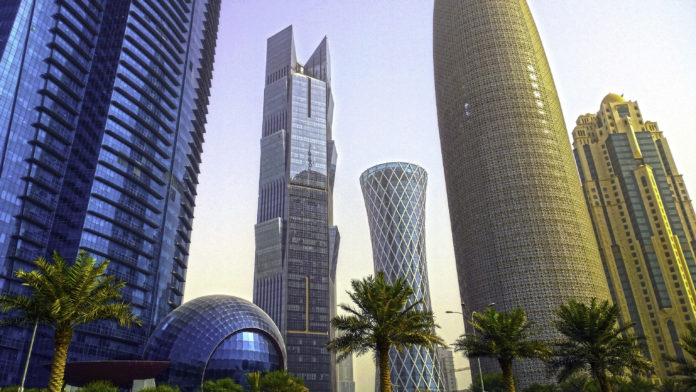An increasing number of people around the world are packing their bags for the Middle East in search of a new lifestyle. The region has enjoyed a huge influx of expats in the last couple of decades, with the number of migrants in the region more than doubling between 2005 and 2015, when it reached 54 million.
While the majority of these émigrés were people displaced due to conflict, a huge 40% relocated into the region in search of new economic opportunities. Many Middle Eastern countries now actively seek foreign workers, offering lucrative job packages with perks like accommodation, health insurance, school fees, and tax-free salaries. And with the region home to some of the most stunning beaches and mountain ranges around the world, it’s easy to see why so many have flocked there.
The Middle East is home to 16 countries in total, making it difficult to know which one is right for you, but by simply looking at the pros, you can find your ideal new home.

Kuwait
Factfile
Capital: Kuwait City
Population: 4 million
Major language: Arabic
Main religion: Islam
Currency: Dinar
Time Zone: AST (UTC+3)
Kuwait is a small nation that sits at the top of the Gulf. Bordered by Saudi Arabia, Iraq, and Iran, its strategic location and huge oil reserves make it one of the world’s most wealthy nations per capita. The country a constitutional emirate with a semi-political system, which is divided between an elected parliament and an appointed government. As such, it is one of the region’s pioneers in equal rights for women, freedom of speech, and low capital punishment rates.
Pros:
- Moneymaking opportunities – There’s certainly money to be made. The Kuwaiti Dinar is the world’s strongest currency and there’s no tax in the country. On top of this, salaries are often higher than in neighbouring countries like UAE, Bahrain, and Saudi Arabia.
- Brand new accommodation – The country has experienced something of a construction boom in the last decade or so, meaning there are plenty of apartments and villas for expats to choose between. Most of these have on-site managers who are responsible for things like the trash being taken out and ensuring the residents’ cars are washed.
- Excellent education and healthcare – Kuwait is home to many different types of private international schools, from American and British to Indian and Pakistani institutions. The same can be said when it comes to healthcare—the country offering a large number of private and public hospitals, with more being built.
- Family-friendly – There is no shortage of things to do in Kuwait, from camel safaris to desert camping and stargazing, keeping the whole family entertained. It’s easier than ever for expats moving to Kuwait for work to bring their family, thanks to the dedicated family visa permit. The process is similar to most visa applications, with the addition of a medical report and a permit letter from the Kuwaiti employer.
Cons:
- The high cost of living – Kuwait’s economy relies on its oil reserves, meaning food and most products are imported. This results in the country having the highest cost of living in any country in the region, making Kuwait the 21st most expensive country in the world.
- Education is expensive – The cost of having an excellent education system is high, especially for Western private schools. However, some employers may include these costs as a perk for employees with families.
Qatar
Factfile
Capital: Doha
Population: 2.7 million
Major language: Arabic
Main religion: Islam
Currency: Riyal
Time Zone: AST (UTC+3)
Situated just above Saudi Arabia, Qatar was long one of the poorest Gulf states but is now one of the wealthiest. The country has used the income generated from its large gas reserves to fund its lofty ambitions, such as its successful bid to host the 2022 FIFA World Cup. Oil money funds a welfare state used to support its inhabitants.
Pros:
- Lucrative living – Qatar is the wealthiest country in the world, with a per capita annual income of $128,060. As such, the earning opportunities in Qatar are significant. The country’s liberalised approach to foreign trade and investment means many more jobs are likely to be created in the upcoming years.
- An enviable lifestyle – With the amount of money flowing into the country, the number of cultural and entertainment attractions in Qatar has skyrocketed in recent years. From colossal shopping centres to a vibrant nightlife scene, residents certainly have plenty of things to do in their free time.
- Education and healthcare options – Qatar has invested heavily in its education sector, attracting some of the world’s best teachers. The standard of healthcare in the country is also extremely high, and will no doubt be improved by Qatar’s National Health Strategy, aimed at further improving standards between 2018 and 2022.
Cons:
- Limited choice of accommodation – While new homes are constantly being built in Qatar, choices are limited to compound villas and high-rise apartments. Popular locations can have long waiting lists, while less attractive districts may be devoid of character and atmosphere.
- Expensive living costs – As most products are imported to the country, the cost of living is high, and has been ranked as the 9th most expensive in the world.
- Qatar’s barren terrain – While there are vast expanses of desert, a few coastal reserves, and several city parks, this is the extent of Qatar’s ‘countryside’. The country is actually one of four in the world with no forests whatsoever.










